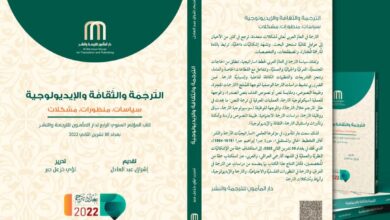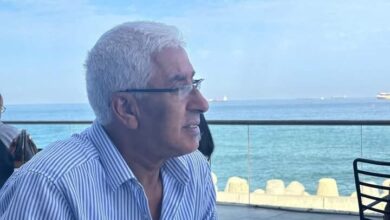
سورية والقضية الفلسطينية
الدكتور محمد توفيق ممدوح الرفاعي
الجزء الأول
1– العرب والعالم في النصف الأول من القرن العشرين وعام النكبة :
حفل العالم منذ بدايات النصف الأول من القرن العشرين حتى ما قبل منتصف القرن العشرين أحداثا وأحلافا عسكرية وسياسية وصراعات وحروب دولية بين الدول القوية في سبيل بسط نفوذها وسيطرتها على معظم دول العالم اقتصاديا وعسكريا، وكان من ابرزها الحربين الكونيتين الأولى والثانية، فالحرب الأولى التي سمي بالحرب العظمى نشبت بين جيوش دول الحلفاء المؤلفة من المملكة المتحدة (بريطانيا العظمى) وإيرلندا وفرنسا والإمبراطورية الروسية، و بين جيوش دول المركز المؤلفة من الإمبراطورية الألمانية والإمبراطورية النمساوية المجرية والدولة العثمانية ومملكة بلغاريا، حيث دامت هذه الحرب من عام /1914/ حتى عام /1918/ تخللها قيام الثورة العربية الكبرى عام /1916/ للاستقلال عن السلطنة العثمانية بقيادة الشريف حسين بدعم إنكليزي فرنسياللتان كانتا تبيتان نوايا إستعمارية خفية لإحتلال المنطقة العربية واقتسامها بينهما، انتهت هذه الحرب بخروج دول الحلفاء منتصرة، وكان من أبرز نتائج هذه الحرب سقوط الإمبراطورية العثمانية وتقاسم دول الحلفاء التركة العثمانية من جملتها الدول العربية التي اقتسمتها فرنسا وبريطانيا متنكرتان للمساعدة التي قدمها العرب للحلفاء أبان الحرب بموجب ما عرف باتفاقية سايكس بيكو، فاحتلت فرنسا سوريا ولبنان والموصل واحتلت بريطانيا الأردن وفلسطين، وما أن وضعت الحرب الكونية أوزارها ولم يكد العالم يلتقط أنفاسه حتى عادت الصراعات من جديد الدولية بين الكثير من الدول وبدأت التكتلات والصراعات وبدت بوادر الحرب تلوح بالأفق من جديد من ابرز أسبابها ظهور النازية الألمانية وتحالفها مع إيطاليا الفاشية وتعاظم قوة اليابان وغزو الصين ثم غزو المانيا لبولندا فأعلنت بريطانيا وفرنسا إعلان الحرب على المانيا، انقسم فيها العالم بين حلفين كبيرين هما حلف دول المحور المؤلف من المانيا وإيطاليا واليابان والمجر ورومانيا وبلغاريا وسلوفاكيا وكرواتيا، وحلف دول الحلفاء المؤلف من بريطانيا العظمى والولايات المتحدة والاتحاد السوفيتي، وسرعان ما اندلعت الحرب الكونية الثانية بينهما أي الحرب العالمية الثانية التي دارت رحاها بين عامي / 1939- 1945/ خرجت منها دول الحلفاء منتصرة انتصارا كاسحا، تسببت هذه الحرب بتغيير خريطة العالم الجيوسياسية فزالت دول وإمبراطوريات وظهرت دول عظمى جديدة تمخضت عن نشوء حلفين عسكريين لقوتين عظيمتين ومعسكرين كبيرين هما الاتحاد السوفيتي الذي يمثل المعسكر الشرقي الشيوعي المتزعم لحلف وارسو والولايات المتحدة الأمريكية التي تمثل المعسكر الغربي الرأسمالي المتزعمة للحلف الأطلسي، تلاها تأسيس دول عظم الإنحياز جمع بعض الدول المستقلة التي رفضت الإنضواء تحت راية كل من المعسكرين الشرقي والغربي والتي سميت فيما بعد دول العالم الثالث، ومن النتائج الهامة أيضا تأسيس منظمة هيئة الأمم المتحدة لفض النزاعات وحل الخلافات بين الدول كي تحد من نشوب الحروب بين دول العالم مجدد اوقعت على ميثاقها معظم الدول المستقلةو انبثق عنها عدة هيأت أممية منها مجلس الأمن ومنظمة العدل الدولية ومنظمة حقوق الإنسان، وبالإجمال نجظ أن من أبرز نتائج هاتين الحربين سقوط الدولة العثمانية وتحول تركيا من سلطنة إسلامية كبرى إلى جمهورية علمانية غربية منضوية تحت راية المعسكر الغربي والحلف الأطلسي، وتعرض العرب للغدر بهم للمرة الثانية من قبل الغرب وعلى الأخص بريطانيا التي أصدرت ما يسمى وعد بلفور الذي منح اليهود حق إقامة وطن قومي لهم في فلسطين ومهدت الطريق لهم بالهجرة إليها لإقامة دولتهم، إلا أن العرب وعلى الرغم من ضعف شوكتهم هبوا جميعا في وجه المستعمر رافضين الاستعمار واشتعلت الثورات الوطنية في شتى بقاع أوطانهم للإستقلال واستطاعت الحصول عليه بعد نضال مستميت قدموا فيه آلاف الشهداء والضحايا، وخرج المستعمر منها مرغما، وكعادته بالغدر ربط بعض هذه الدول بأحلاف عسكرية وقواعد عسكرية تقيد استقلالهموتربطهم به واستخلف عملاء يعملون أجراء لديه يزفذون ما يؤمروا به، ولم تكد هذه الدول تلتقط أنفاسها وهي لا تزل في مرحلة النقاهة وتحاول استعادة عافيتها لخروجها منهكة ومتعبة اجتماعيا وسياسيا واقتصاديا حتى جاءت المصيبة الكبرى بإعلان بريطانيا إنهاء احتلال فلسطين عام /1947/ وعرضت الأمر على منظمة الأمم المتحدة التي تبنت قرار تقسيم فلسطين بين العرب والكيان الإسرائيلي المدعوم غربيا لإقامة ما يسمى دولة إسرائيل.
د. محمد توفيق ممدوح الرفاعي
يتبع
Syria and the Palestinian Cause
Dr. Muhammad Tawfiq Mamdouh Al-Rifai
Part One
1- The Arabs and the World in the First Half of the Twentieth Century and the Year of the Nakba:
The world, from the beginning of the first half of the twentieth century until before the middle of the twentieth century, witnessed events, military and political alliances, conflicts and international wars between powerful countries in order to extend their influence and control over most countries of the world economically and militarily. The most prominent of these were the First and Second World Wars. The first war, called the Great War, broke out between the armies of the Allied powers consisting of the United Kingdom (Great Britain), Ireland, France and the Russian Empire, and between the armies of the Central Powers consisting of the German Empire, the Austro-Hungarian Empire, the Ottoman Empire and the Kingdom of Bulgaria. This war lasted from 1914 to 1918, during which the Great Arab Revolution took place in 1916 for independence from the Ottoman Empire, led by Sharif Hussein with British and French support, which harbored hidden colonial intentions to occupy the Arab region and divide it up. Between them, this war ended with the Allied powers emerging victorious, and one of the most prominent results of this war was the fall of the Ottoman Empire and the division of the Ottoman legacy by the Allied powers, including the Arab countries that France and Britain divided up, denying the assistance that the Arabs provided to the Allies during the war under what was known as the Sykes-Picot Agreement. France occupied Syria, Lebanon and Mosul, and Britain occupied Jordan and Palestine. As soon as the global war ended and the world had barely caught its breath, international conflicts returned again between many countries, and blocs and conflicts began, and signs of war appeared on the horizon again, the most prominent causes of which were the emergence of German Nazism and its alliance with fascist Italy, the growing power of Japan, the invasion of China, and then Germany’s invasion of Poland. Britain and France declared war on Germany, in which the world was divided between two major alliances: the Axis powers alliance consisting of Germany, Italy, Japan, Hungary, Romania, Bulgaria, Slovakia and Croatia, and the Allied powers alliance consisting of Great Britain, the United States and the Soviet Union. Soon, the Second World War broke out between them, that is, World War II. The second war, which took place between 1939 and 1945, resulted in a sweeping victory for the Allied Powers. This war changed the geopolitical map of the world, as countries and empires disappeared and new superpowers emerged, resulting in the emergence of two military alliances for two great powers and two major camps: the Soviet Union, which represents the communist Eastern Bloc leading the Warsaw Pact, and the United States of America, which represents the capitalist Western Bloc leading NATO. This was followed by the establishment of the Allied Powers, which brought together some independent countries that refused to join the Eastern and Western Blocs, which were later called the Third World countries. Another important result was the establishment of the United Nations Organization for the Resolution of Disputes and the Settlement of Disputes between States in order to limit the outbreak of wars between the countries of the world. Most independent countries signed its charter, and several international bodies emerged from it, including the Security Council, the International Justice Organization, and the Human Rights Organization. In general, we find that one of the most prominent results of these two wars was the fall of the Ottoman Empire and the transformation of Turkey from a major Islamic sultanate into a republic. Western secularism under the banner of the Western camp and NATO, and the Arabs were betrayed for the second time by the West, especially Britain, which issued the so-called Balfour Declaration, which granted the Jews the right to establish a national homeland for them in Palestine and paved the way for them to immigrate to it to establish their state. However, the Arabs, despite their weak power, all rose up against the colonizer, rejecting colonization, and national revolutions erupted in various parts of their homelands for independence and were able to obtain it after a desperate struggle in which they presented thousands of martyrs and victims. The colonizer was forced to leave it, and as usual with treachery, he linked some of these countries with military alliances and military bases that restricted their independence and tied them to him, and he appointed agents who worked for him and carried out what they were ordered to do. These countries had hardly caught their breath while they were still in the recovery phase and trying to regain their health because they left exhausted and tired socially, politically and economically, until the great calamity came with Britain’s announcement of the end of the occupation of Palestine in 1947, and it presented the matter to the United Nations, which adopted it. The decision to partition Palestine between the Arabs and the Western-backed Israeli entity to establish the so-called State of Israel.
Dr. Muhammad Tawfiq Mamdouh Al-Rifai
To be continued
سورية والقضية الفلسطينية






